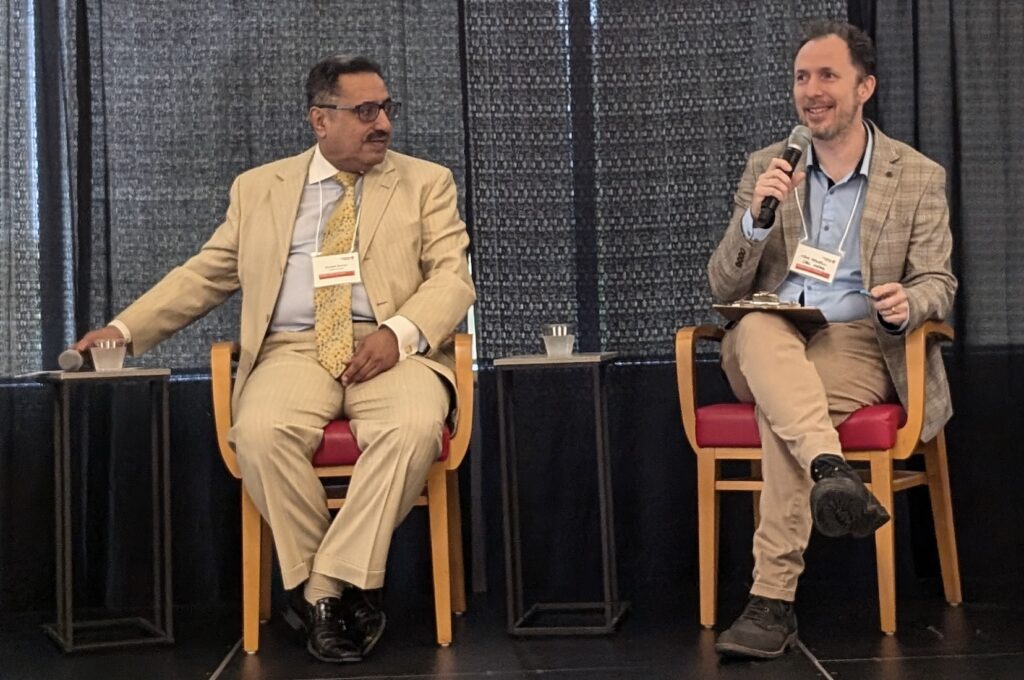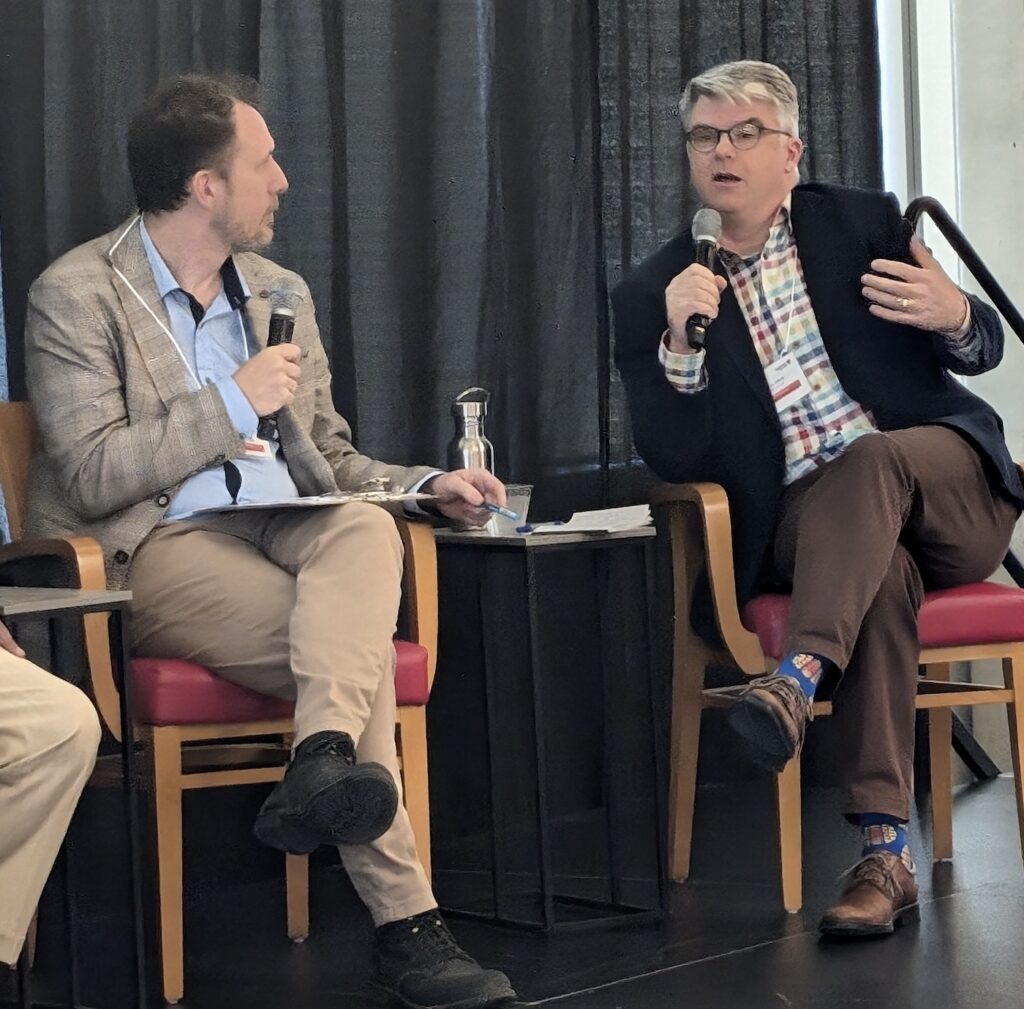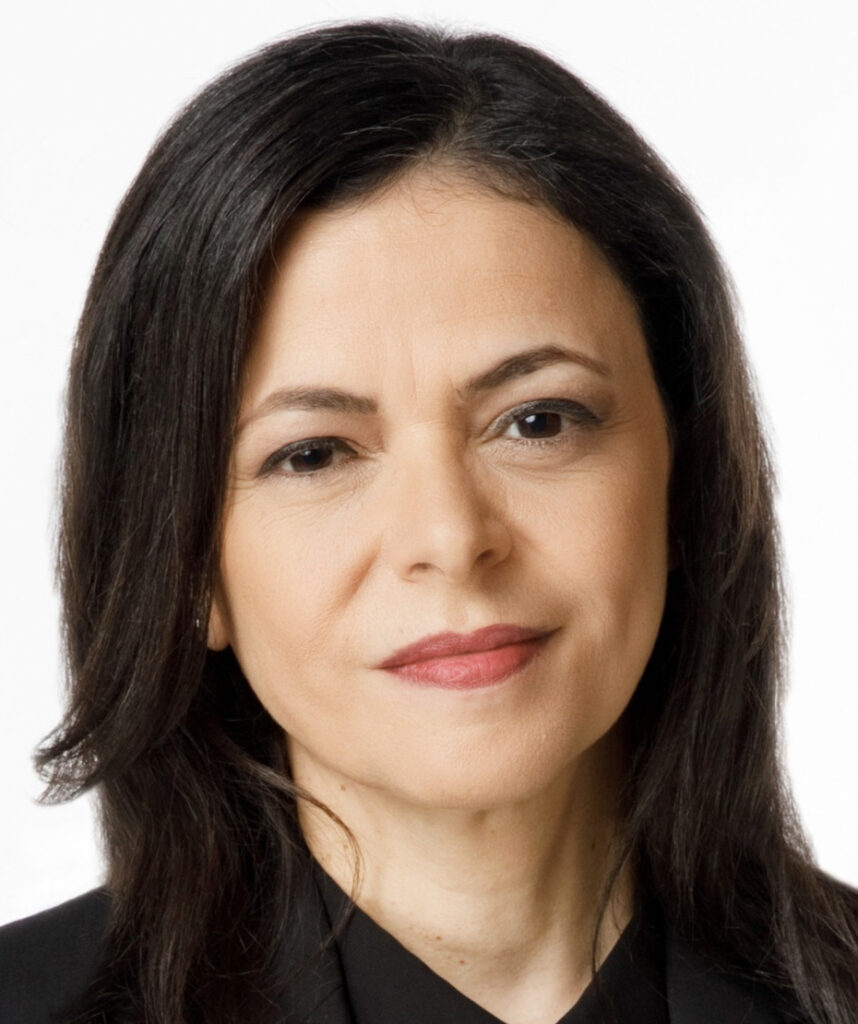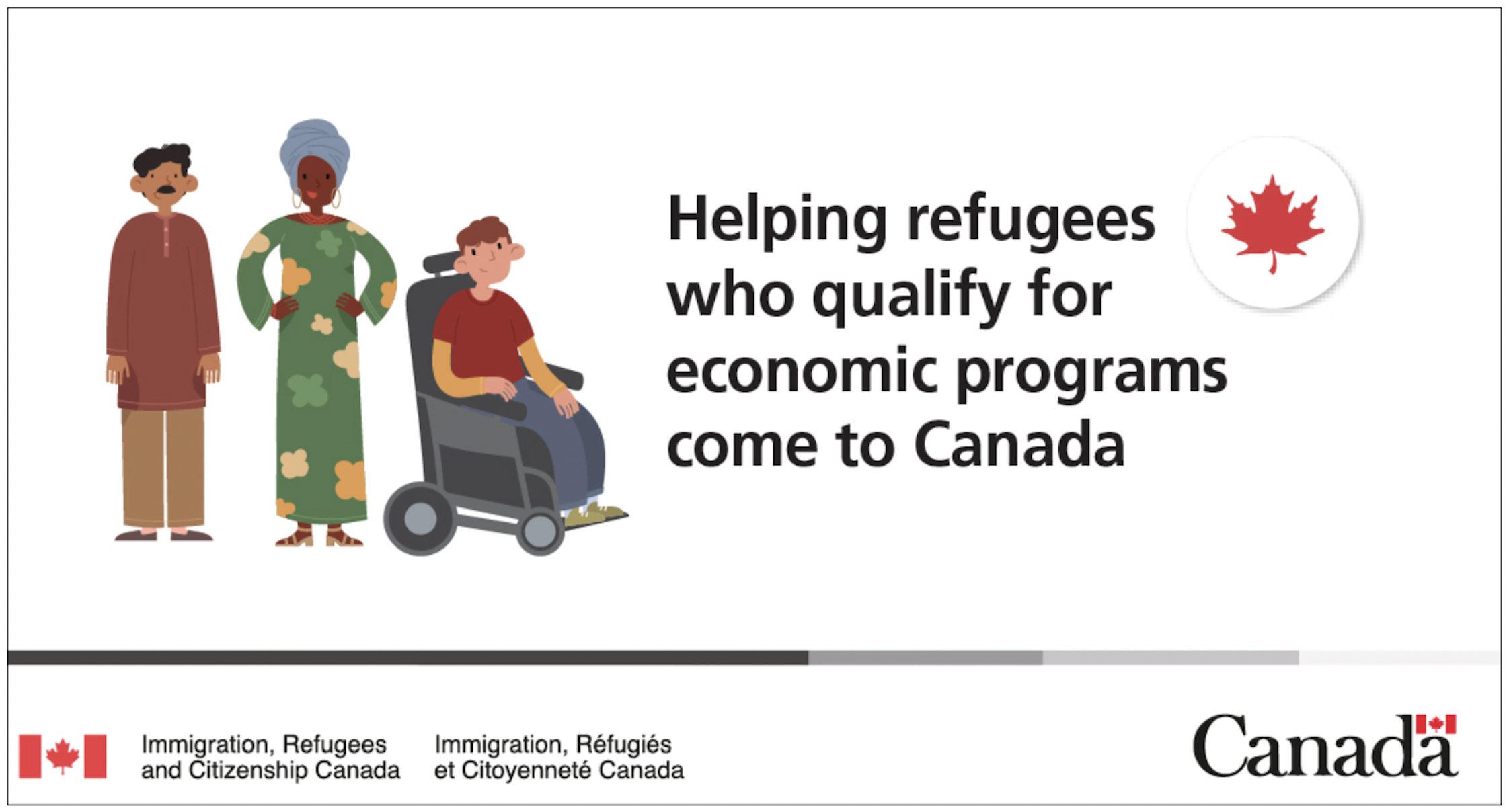
Note: An earlier version of this story stated the CBC Ideas episode would air Monday, June 9. It was later rescheduled to Friday, June 13.
The Safe Havens and Knowledge Networks in Canada conference, held May 22-23 at Carleton University, will be featured in a June 13 episode of CBC Radio’s Ideas program examining the Scholars at Risk movement in Canada and around the world.
The conference’s opening keynote session, which was moderated by CBC Radio producer Tom Howell, provided a broad overview of the global challenges facing academic freedom and the response by universities and other organizations in Canada and elsewhere — including the Ottawa-based International Development Research Centre — to support scholars, students, artists and others forced to flee their home countries because of political oppression.
CBC Ideas host Nahlah Ayed, one of Canada’s best known foreign correspondents and a graduate of Carleton’s journalism progam, had been scheduled to moderate the panel but was unable to attend the conference. However, Howell led an illuminating, 90-minute conversation that featured three members of Carleton’s academic community with unique perspectives on the struggles faced by scholars at risk.
Carleton University physics instructor Dr. Mustafa Bahran, a scientist-scholar forced to flee Yemen and now a leading advocate for supporting displaced intellectuals, activists and artists, framed the Safe Havens and Knowledge Networks in Canada conference as coming at a critical moment in world affairs.

“We are living in a time of deep uncertainty, where knowledge is contested, truth is ignored, facts are distorted, borders are hardened, and the very act of asking questions can carry risk,” said Bahran, who came to Canada after serving his home country as a prominent professor, senior public servant and national Minister of Electricity and Energy in 2007-08.
The session also featured Dr. Zahra Nazari — a scholar from Afghanistan who is now a visiting professor with Carleton’s Department of Electronics — and Dr. James Milner, a Carleton political science professor who has long championed the cause of at-risk scholars among fellow human rights defenders.
“It’s not a charity, it’s a smart investment — an investment in global peace, global justice and also innovation and diversity. Because when you bring a scholar here, they bring knowledge,” said Nazari, who also spoke about her experiences as an Afghan woman who fled the country in August 2021 when the Taliban regained power.
Nazari is also the director of Women in Tech Afghanistan and began a project in 2022 that uses blockchain technology and AI to help migrants maintain their educational and professional credentials when relocating to other countries.
Milner, Canada’s first De Mello Chair and director of The Local Engagement Refugee Research Network, brought a big-picture political perspective to the discussion.
‘Mustafa is speaking on the panel as a physicist. One of the most famous refugees in the last century was Albert Einstein, also a physicist, and the contributions that Albert Einstein was able to make to science were by virtue of having an academic community that could support and host him.’
— Dr. James Milner, Carleton University professor and scholars-at-risk advocate
“In my son’s Grade 2 classroom, there is a poster, and it says: If you change the way you look at things, the things you look at change . . . Canada needs to be part of a global paradigm shift in how we think about responses to displacement, not as an act of charity and altruism, but as good common sense in working side by side with those who are the agents of change in the world today,” he said.
Dr. Bahran, who completed his PhD in the U.S. at the University of Oklahoma, spoke compellingly about the day-to-day challenges of being a displaced international scholar in the Canadian job market.
“My scholar-at-risk journey started when I was at risk in Yemen. I was surviving one day at a time,” he said. “Then I moved to Saudi Arabia, north, and I was surviving one month at a time. Then I moved to the United States from Saudi Arabia. They did welcome me there, and I was surviving in the United States one year at a time. Then I moved even more north to Canada, thanks to my wife, who’s here, and now I’m surviving. I’m a Canadian. But job-wise, I’m surviving one year at a time.”
He added: “Carleton, for me, is my home, even if I am a contract instructor.”

The keynote session concluded with talk of solutions on how Canadian universities could better support scholars at risk. Milner offered a powerful analogy.
“Mustafa is speaking on the panel as a physicist. One of the most famous refugees in the last century was Albert Einstein, also a physicist, and the contributions that Albert Einstein was able to make to science were by virtue of having an academic community that could support and host him,” he said.
Similarly, Nazari concluded the keynote with a call to action for Canadian universities.
“If (Canadian Universities) can create some pathways to transition from temporary positions to permanent positions, or maybe if they can help us to have permanent residency, it would help us a lot,” she said. “Because we have to think about many things. We cannot focus only on our research. You have to think about everything.”
The Ideas episode, which airs at 8 p.m. ET on Friday, June 13, and which also will be available as a podcast, is titled “Scholars at Risk: A New Role for Canadian Universities.”
“More than half of the world’s population lives in areas where academic freedom is either ‘completely restricted’ or ‘severely restricted,’ according to European research published in 2025,” states a CBC description of the episode. “For individual scholars and students, this can mean direct threats to their lives or those of their families. It can also mean the impossibility of continuing their work, especially on topics that displease local authorities. Some of these scholars escape to Canada, where universities host them temporarily, or permanently. Many more attempt to work closer to their home countries. Here in Canada universities and professors can take a role in helping them continue their work. Scholars-in-exile from dozens of countries gather at Carleton University in Ottawa to debate ways to support free thinking and research whenever and wherever it is threatened.”


